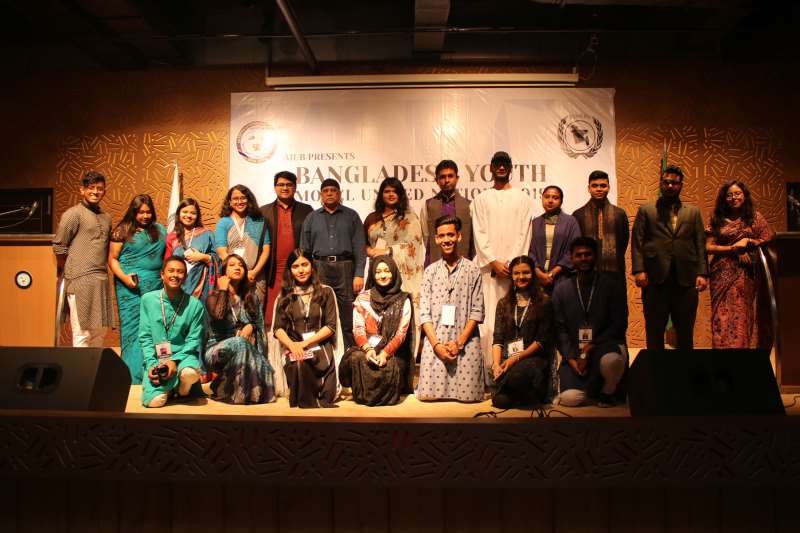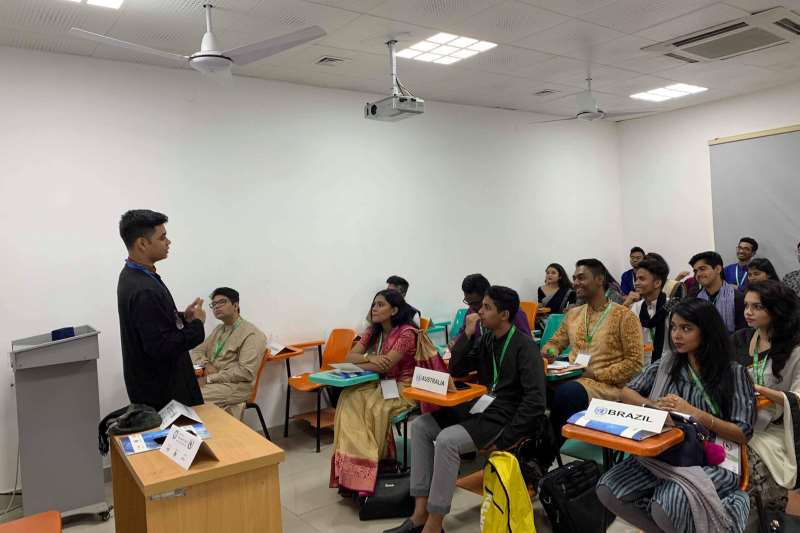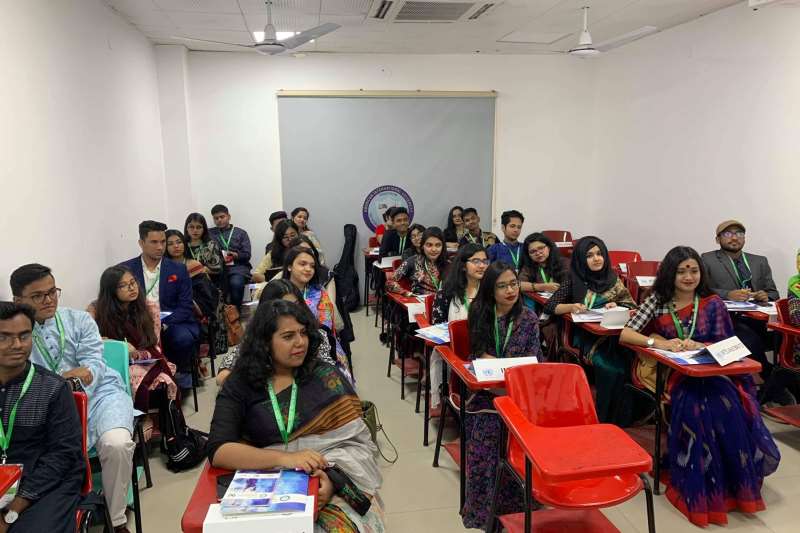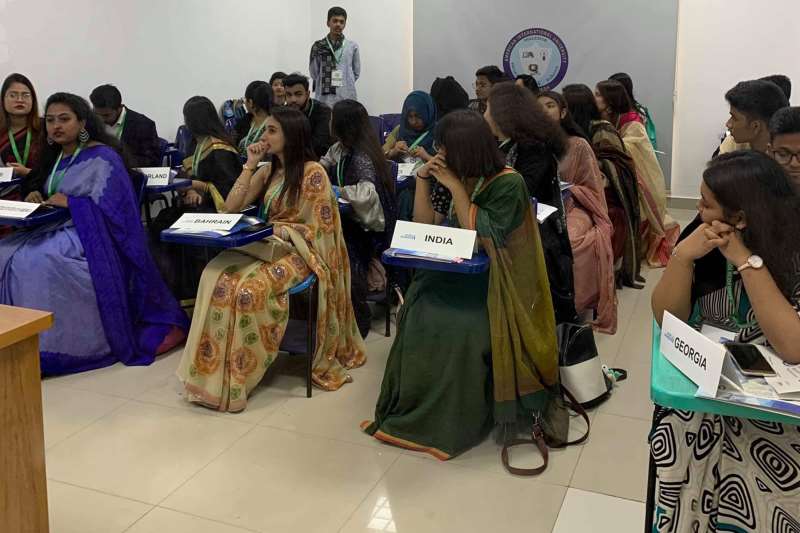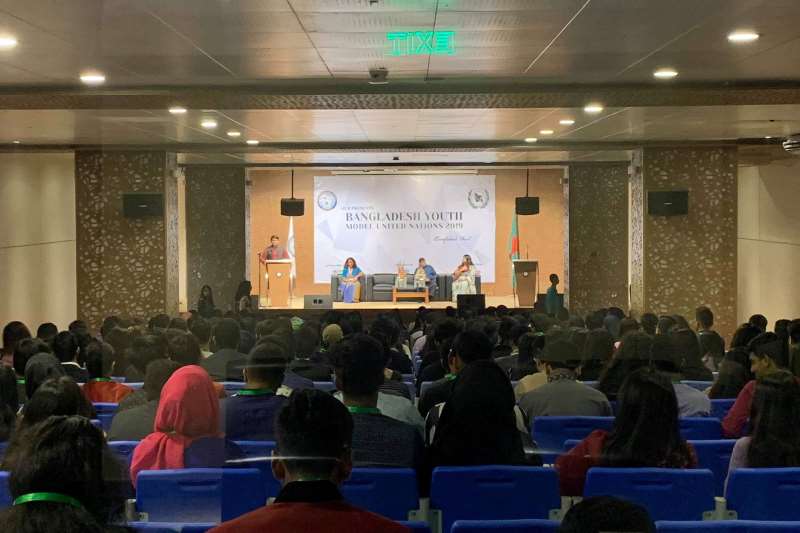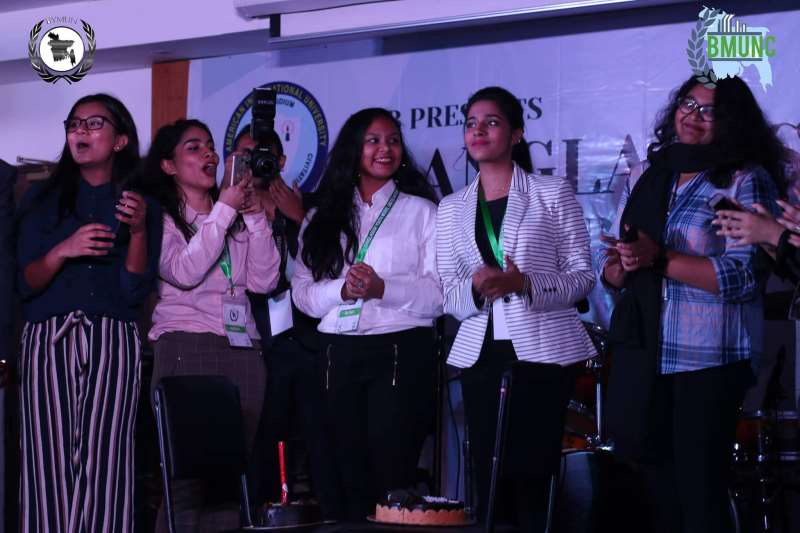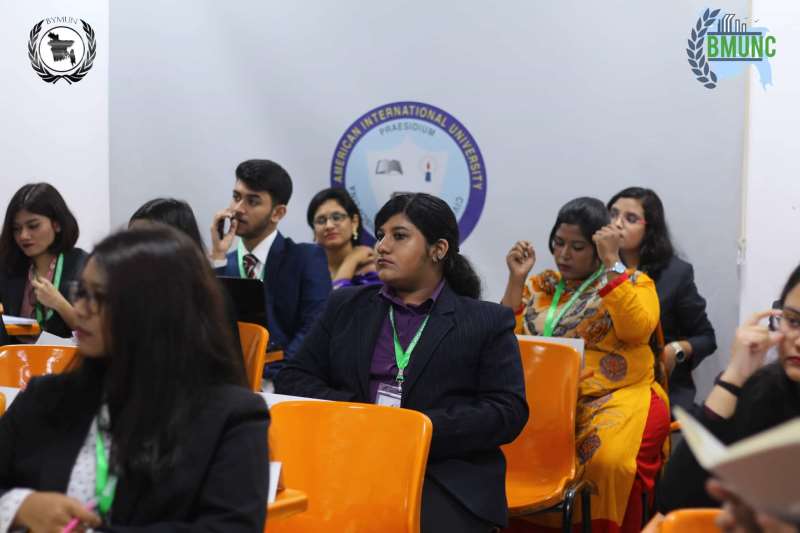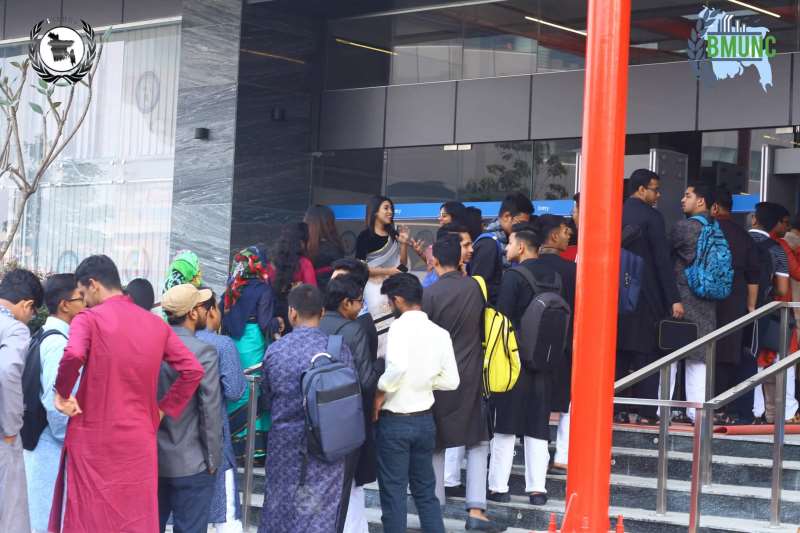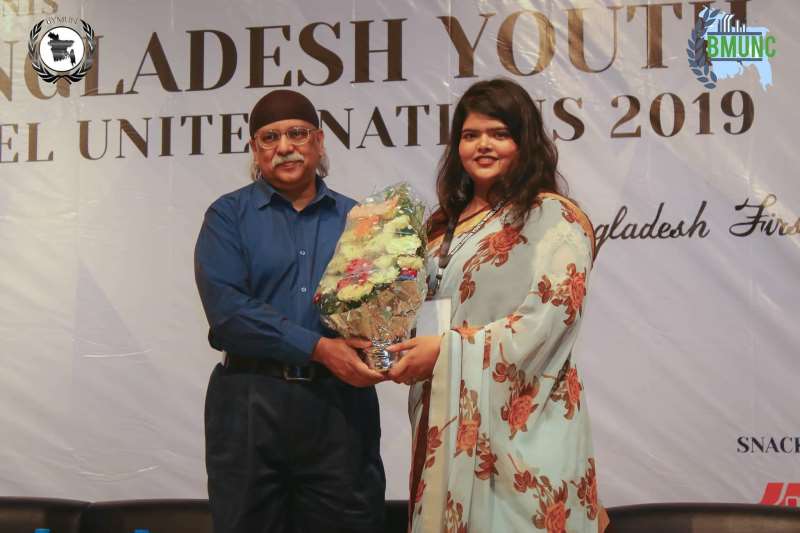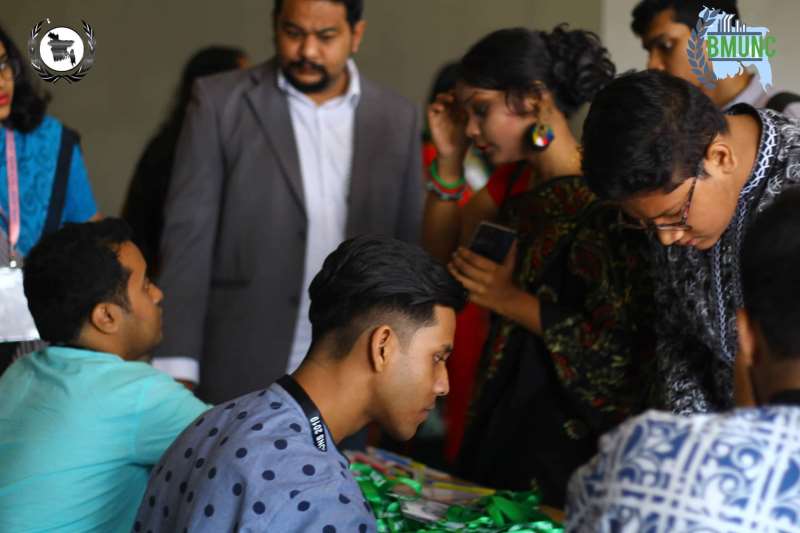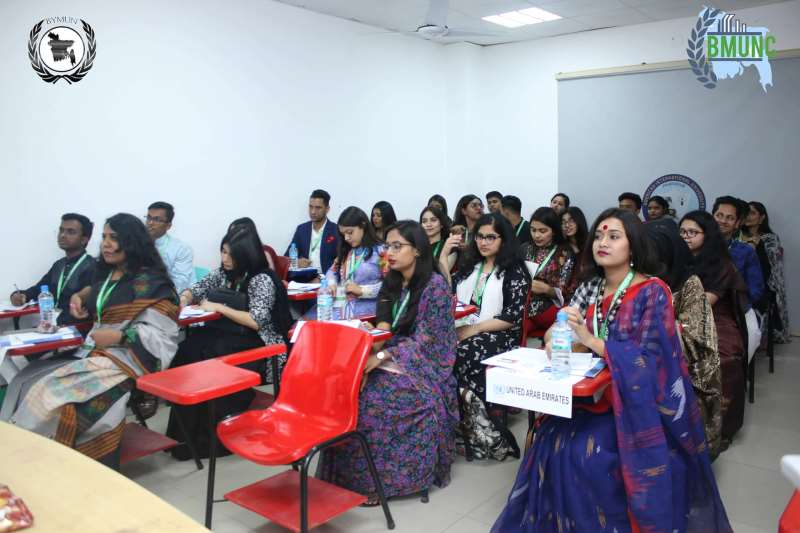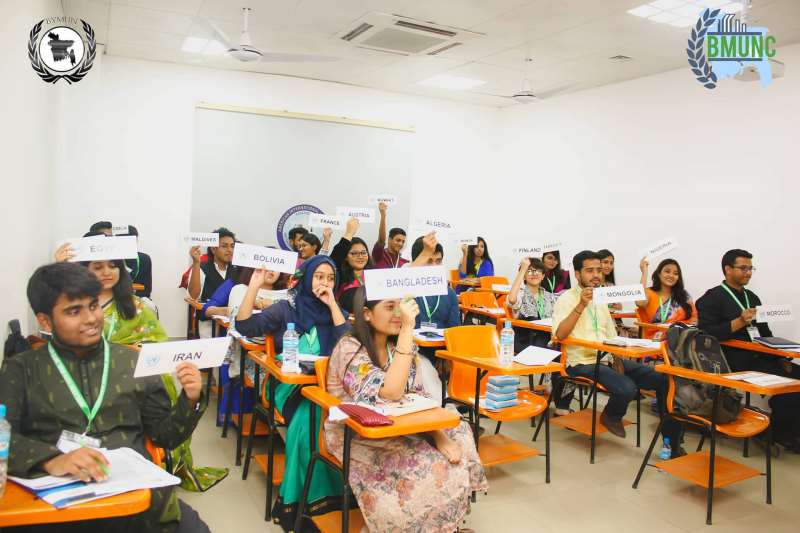Today, we live in a world torn between hate and dreams. But even then, there’s so much to hope for, so much to fight for, so much to change. We may not always build the future for our youth, but we can build our youth for the future. And the Bangladesh Model United Nations Council (BMUNC) proved just that. As a group of talented bright minds that brought together a platform that engages the youth in an educational simulation and academic activity to learn and practice diplomacy, negotiation, critical thinking, compromise, teamwork, leadership, public speaking, writing, research, and international relations, BMUNC organized their 2nd national MUN Conference.
The “AIUB presents Bangladesh Youth Model United Nations 2019 (BYMUN ’19)”, was held from the 22nd – 24th of February 2019, was hosted by the American International University – Bangladesh (AIUB), as the title sponsor as well as the venue partner for the event, at their sprawling new permanent campus located in the bustling capital of Dhaka City. Over 400 schools, colleges, and university students from across more than 70 institutions nationwide participated in the conference. Traditionally, MUN Conferences, enable delegates to roleplay as various members of the United Nations and its respective committees. The delegates are placed in committees and assigned countries to represent, or occasionally other organizations or political figures, where they represent members of that body. They are presented with their assignments in advance, along with a topic or topics that their committee will discuss. Delegates conduct research before conferences and formulate positions that they will then debate with their fellow delegates in the committee, staying true to the actual position of the member they represent. At the end of a conference, the best-performing delegates in each committee, as well as delegations, are sometimes recognized with awards. The entire exercise is meant to engage students and allow them to develop deeper understanding into current world issues. The idea of MUN is to providing solutions that every nation can endeavor and use in resolving crises by means of uniting strength in order to maintain international peace and security, enabling participants to distinguish the difference between a power struggle and diplomacy.
Of the many agendas discussed at the conference, each committee was assigned their own one, based off which they were to come up with resolutions and present their ideas. The UN Security Council (UNSC) were concerned with the security force abuse and impunity at the Bangladesh borders. The UN Environment Program (UNEP) dealt with the environmental problems and prospects of decentralization in Bangladesh. The UN Development Program (UNDP) ensued infrastructural reforms to accommodate the Rohingya immigrants. UN Women tried to answer the question of safe public transportation for women. The UN High Commissioner for Refugees (UNHCR) worked on the government’s intervention of public data and the invasion of personal privacy. The UN Office on Drugs & Crimes (UNODC) addressed the war on drugs through rehabilitation of drug suppliers. The Social, Cultural, & Humanitarian Committee (SOCHUM) focused on the attacks in civil societies and the freedom of expression. The Economic & Financial Committee (ECOFIN) concentrated on the role Rohingya immigrants will be playing in the Bangladesh economy. For the first time ever, the conference had the General Assembly take place, following the typical set up of a UN General Assembly. Their incubagtion partner, YY Goshti agreed to assist the feasible social ventures from the General Assembly with seed funding, mentorship, office space, training, and additional resources. BYMUNC collaborated with Panjeree Publications Ltd. and Ifad Multi Products Ltd. as their Knowledge Partner and Snacks Partner for the conference.
AIUB is proud to be engaging in a dialogue working towards identifying challenges, opportunities, and more importantly, solutions to redirect the trajectory of the country’s growth for the years to come. With rigorous sessions on practical applications of global scenarios and its impact on a national level, the participants experienced a holistic personal and professional development program, that made them more aware and skilled towards socio-economic development of not just one’s own country but the world by extension in the long run.
